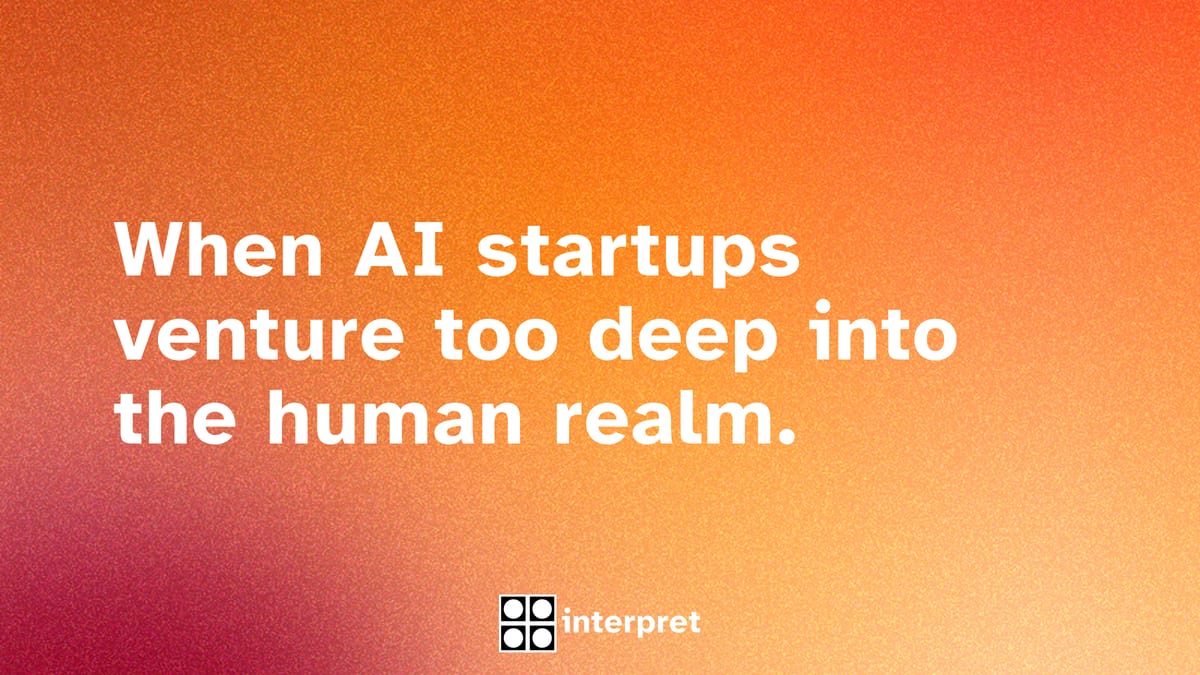When AI startups venture too deep into the human realm.
Why Psychologists and Neuroscientists will become the most successful agentic AI PMs.

Agentic AI is the buzzword of the hour. Machines which can do so many different tasks for you independently, that they could replace your co-worker (or you).
The investment thesis for agentic AI products hinges on the idea that LLMs will expand into the sector of (currently) human labor, replacing a significant chunk of the job market and capturing what was previously wages as product revenue.
Agentic AI is about non-deterministic automation. The current scope of such automation is web browsing, with products like Comet or OpenAI's Agent and Claude computer use gaining traction.
But those are not the exciting use cases to keep raising billions on. It is about replacing whole humans at work. Whilst many companies raise on this case today, realistically, we will see a more incremental progress towards "full replacement". If you still can't help yourself from investing in the next Artisan, Manus AI or other universal AI agents, at least hear me out:
Psychologists & Neuroscientists as makers.
To replace human cognition, you need to understand it. The initial paradigm in achieving that goal was to throw more compute at the issue, an IT-problem. Companies like Deepseek went on to show that it is at least as much about architecture.
I would argue, that improvements in GenAI performance will come more or less exclusively from clever architecture in the near future. Over the next few years, as compute-related gains top out in the low single digits, those who have the inside scoop on human cognition will become the architects of non-deterministic automation.
In my opinion, a technically informed Psychologist will make the best PM for an agentic product. The reason? They know what we as humans don't know about cognition yet. They know which hypothesis to test with an investment and which to stay away from, as they are either wrong or too far out for commercialization. Yes, machine cognition is not just a "simpler" version of human cognition. But it is and will be heavily modeled after it. We steal from nature all the time in product design.
Psychologists & Neuroscientists as investors.
The next argument is quite a simple one in my opinion. Those who understand the brain should be handed the control over the money as well. And I don't mean mental health focussed investing, I mean the broad market.
Let me make an example:
Here is why consulting even a single Psychologist would have prevented Pillar VC, Soma Capital, Village Global, and Morningside Venture from sinking (arguably small) checks into the startup Halo:
The pitch for their glasses: a true second brain, that records, stores and feeds you all the relevant information from your past experience, to give you “superhuman intelligence”. But there is an issue: memory ≠ intelligence. By making information abundantly available you will not become a better problem solver or thinker.

You will actually train your memory less, and rather degenerate, than reach the next stage of human-machine-interaction. Tech bros see the short term gain, without understanding the danger of tools taking “mental load” off our shoulders. In the long run, you will not only replace humans by making them so bad at thinking that LLMs will do a better job, but also turn your customers into vegetables.
Augmenting human decision-making with technology is an inevitable outcome. But don’t fool yourself thinking that people will become more intelligent using AI.
Education is the core controllable variable in developing intelligence. The better business case would be glasses that know what you should know or be able to do and adaptively quiz you on the go. This could connect classroom learning with the real world seamlessly, especially in the glasses form factor.
TL;DR: A Psychologist or Neuroscientist would have not invested into this nonsense, as it is clear that the founders don't have a clue of what they are building.
Thesis:
The future of investing into Agentic products is one lead by investors with education in neuroscience and psychology, not by developers and tech bros. They will be the PMs of the future. They understand the complexity of a human task, know what we know about the human brain, and can translate that into increasingly more ambitious products, not into the completely random moonshot startups of the current hype cycle.
